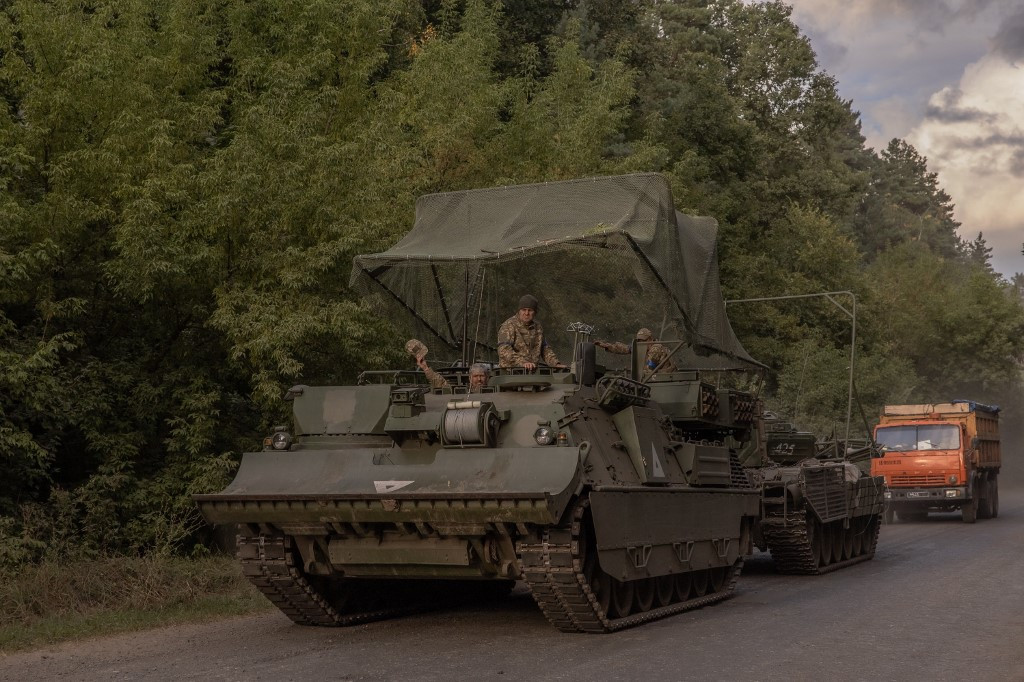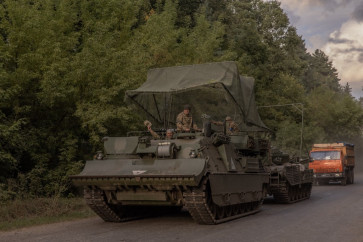Popular Reads
Top Results
Can't find what you're looking for?
View all search resultsPopular Reads
Top Results
Can't find what you're looking for?
View all search resultsShould Ukraine have nuclear weapons?
With some of those around Donald Trump already accusing Joe Biden of taking a dangerous step toward a new world war, is it fair to say that Ukraine went too far?
Change text size
Gift Premium Articles
to Anyone
F
ollowing Donald Trump’s victory in the 2024 United States presidential election, Alexandria Ocasio-Cortez, a Democratic congresswoman from New York, publicly appealed to those who had voted for both her and Trump. She wanted to know what motivated such an apparently inconsistent choice, and the predominant answer she heard was that she and Trump seemed more sincere, whereas Vice President Kamala Harris came off as too calculating.
It was a fruitful exercise, and we can ask the same of leftists who support both the Palestinians and Russia. After all, the latter has been bombing Ukrainian cities until they resemble Gaza, and just as the right-wing parties in Israel’s government want to create a Greater Israel, the Kremlin hopes to create a Greater Russia. Russia’s eliminationist project should thus remain top of mind whenever we assess developments on the ground.
Immediately after the recent decision by US President Joe Biden’s administration to allow Ukraine to launch US-furnished ATACMS missiles (with a range of up to 300 kilometers) into Russia, the Kremlin warned that any use of Western arms against the Russian Federation could trigger a nuclear response under its new nuclear doctrine. Nonetheless, the Ukrainians countered by firing six ATACMS missiles at a military facility in the Bryansk region (adjacent to the Ukrainian border) the next day.
Although Russia claims that the damage was negligible, five of the missiles were shot down, and there were no casualties, following the letter of its new nuclear doctrine would mean that it is now at war with the US and has the right to use nuclear weapons against Ukraine. With some of those around Trump already accusing Joe Biden of taking a dangerous step toward a new world war, is it fair to say that Ukraine went too far? Has it disturbed the fragile balance that kept the conflict limited?
Before jumping to this conclusion, one must remember that the US has permitted Ukraine to target locations primarily in Kursk, the border region from which Russia has been launching many of its attacks against Ukrainian positions. As Josep Borrell, the (outgoing) EU foreign-policy chief put it: “Ukraine should be able to use the arms we provided to them not only to stop the arrow, but also to be able to hit the archers.”
Moreover, recall that Russia had escalated its own campaign against Ukraine mere days earlier, blanketing the entire country with drone and missile attacks against civilian energy infrastructure just before the onset of winter. While six Ukrainian missiles caused panic all around the world, Russia’s systematic destruction of Ukrainian infrastructure has been normalized, much like Israel’s razing of northern Gaza.
The situation is as obscene as it is absurd. Russia, having launched a war of conquest against its peaceful neighbor, now wants to keep its own territory out of the war, and it accuses Ukraine, the victim, of “expanding” the conflict. If Russia is serious about its new nuclear doctrine, let us offer an equally serious counter-doctrine: If an independent country is attacked with non-nuclear forces by a nuclear superpower, its allies have the right, even the duty, to provide it with nuclear weapons so that it has a chance of deterring an attack.



















